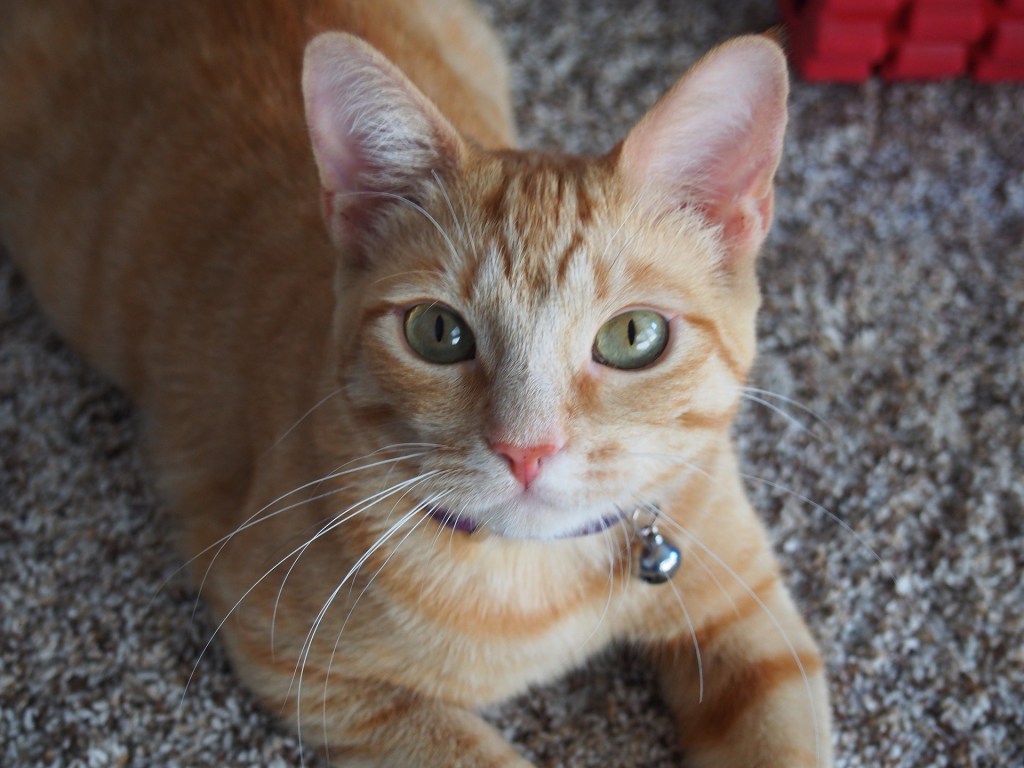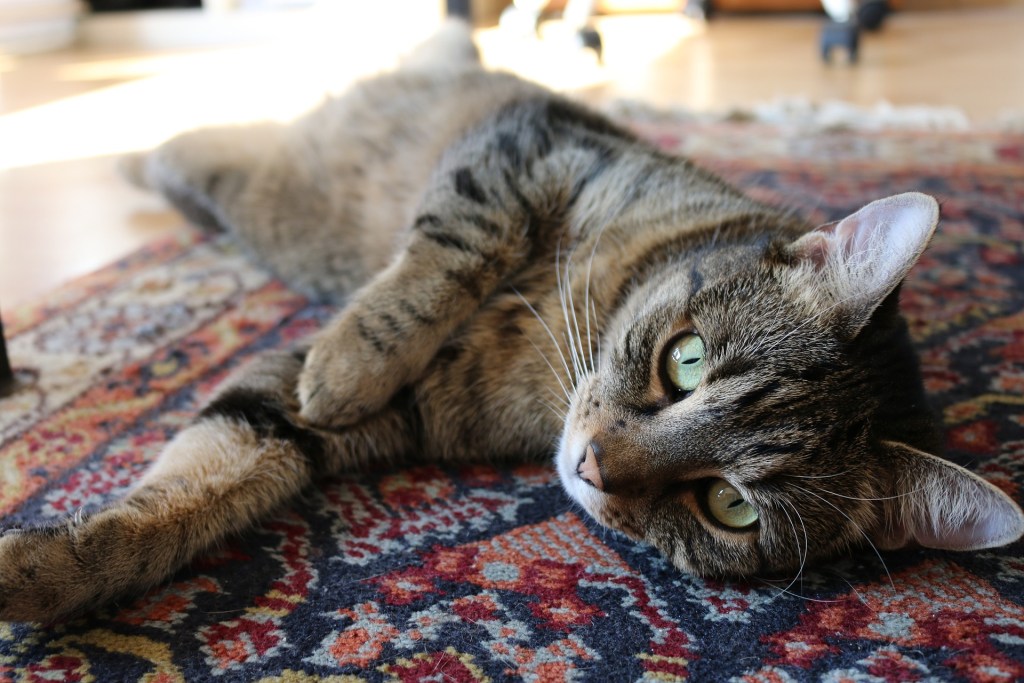When you have cats, even kitties who are well trained in using a litter box can still have the occasional accident. Cat pee has an incredibly powerful smell, so it’s always important to thoroughly clean up accidents right away. Understanding how to get rid of cat-pee smell may help you save your carpets — and help you discourage your cats from peeing on the carpet again. Just in case an accident happens, it’s always a good idea to understand effective cleaning methods and to be prepared with a cat-pee cleanser.

Start with the right products
To get rid of the cat-pee smell, you’ll need a product that’s up to the task. You’ve got a few options here. At the most basic, you can rely on a combination of baking soda and vinegar. Vinegar helps neutralize the smell of pee, while baking soda has great smell-reducing properties. You can combine these in a 1:1 ratio to make your own cleanser right in your home.
Alternatively, you might want to buy a product to remove the smell of cat pee. These products are specially designed to help break down the acid in cat pee, which is what gives it that penetrating smell. These products are often called enzymatic cleansers — they contain enzymes that break down that acid and kill off bacteria that also can create strong odors. There are many cleansers available, so it’s a good idea to stock up on one.
Clean up the pee quickly
Cat-pee odors are strong to begin with, and they only get stronger the longer that they sit. Cleaning up cat pee can be challenging, so it’s important to promptly take care of any accidents.
Cleaning up cat pee is a multistep process:
- Start by blotting up the pee with a paper towel or cloth.
- Next, rinse the area with water to help dilute the pee. Blot it up again with a cloth.
- Use your cleanser and apply it liberally so you thoroughly soak the area. Let it sit for 10 minutes, or follow the directions on the product, and then use a clean cloth to blot it and absorb as much as possible.
- You may need to reapply the cleanser two or three times. Let the stain dry between each application.
In some cases, carpet that has been repeatedly peed on may be too far gone, and it may be impossible to completely remove the odor. You may just want to replace the carpet, or the lingering smell of urine will encourage your cats to keep relieving themselves on it.

Get to the root of the issue
Thoroughly cleaning up cat pee is crucial because the smell can give your cat the idea that carpet is for peeing on. In addition to cleaning up the pee, though, it’s important to get to the root of the issue that caused your cat to pee in that spot in the first place.
A cat urinating outside the litter box may be trying to send you any number of messages. He might be reacting to stress, like the addition of a new pet to the home, and trying to mark his territory. He also might be picky about his litter box and might be protesting it’s too dirty, too difficult to get into, or even in a location where he doesn’t feel safe. Changing to a new type of cat litter can also upset sensitive cats.
Many different health issues also can prompt cats to urinate outside the box. Your cat might be dealing with arthritis or another type of pain that makes it difficult for him to get into the box. He might be suffering from a urinary condition that makes urinating painful. To know for sure if it’s a health issue, have your vet evaluate your kitty.
If your cat urinates on the carpet, it’s important to act quickly. Get the spot thoroughly cleaned up and try to keep your cat off it to prevent him from urinating there again. If your cat has suddenly developed the habit of peeing outside his litter box, you’ll want to quickly work to identify what’s behind this new behavior. Recent lifestyle changes or even changes in the litter you’re using might be the issue. If you’re not sure just what’s causing the behavior, then it’s best to start with a trip to the vet to make sure there isn’t a physical issue to blame.
Editors' Recommendations
- Why do cats twitch in their sleep? The real reasons behind this curious behavior
- Why do cats cover their face when they sleep? This adorable behavior, explained
- Why do cats eat plastic (and when you should be concerned)?
- Why do cats open their mouths when they smell? It’s for a really cool reason
- How long do cats live? The answer may actually depend on their human parent



